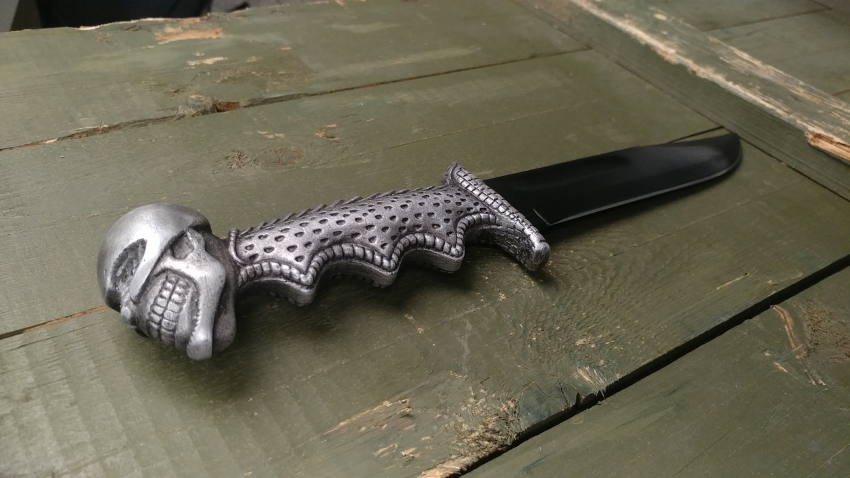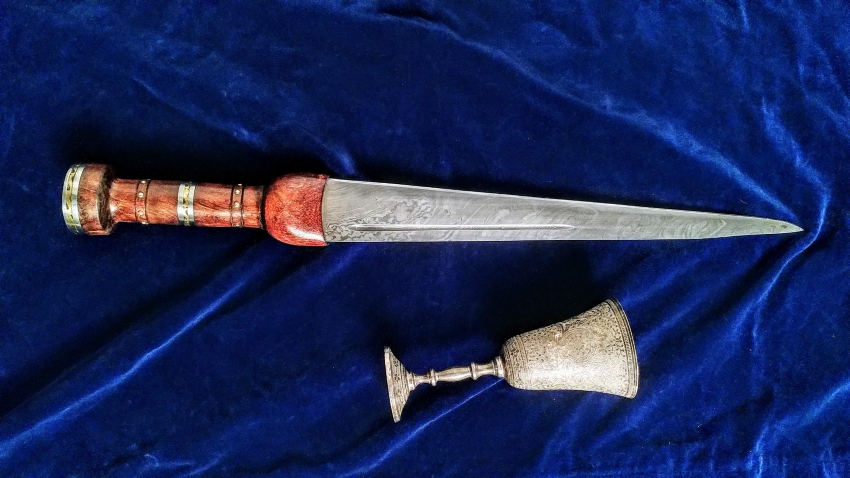Which is better: Carbon Steel or Damascus Steel Knife?
24th Oct 2018
Which is better– carbon steel knife or Damascus steel knife? The answer to this is subjective. The general consensus is that while one of them is aesthetically more pleasing, the other offers greater performance. Here, we’ll try not to make it a “versus” debate but rather summarize the pros and cons of both and let you decide.
Carbon steel knives
Carbon is a hard element and so blades made from carbon are naturally hard, which means they offer greater edge retention and are good at resisting abrasion and retaining shape. This hardness also lends to greater sharpness and carbon steel knives cut more precisely than most other knives, one reason why professional chefs prefer them. Also, these knives are relatively cheaper than others. The downside with a carbon steel knife is that it lacks the chromium content of a stainless steel knife, which makes it vulnerable to rust. Further, high carbon steel due to its hardness is more liable to crack than bend when placed under high tensile stress. Low carbon steel, on the other hand, is more ductile and tends to bend than break which makes it easier to weld.

Damascus steel knives
Damascus steel is the name given to steel which is made by forging together iron and steel or steel alloys. This results in beautiful, wavy patterns that are its unique characteristic. The exact ancient technique of making Damascus steel is, sadly, lost to history, but modern Damascus is pretty close. Today, people buy Damascus steel knives for their history and the intrigue that other knives don’t quite offer. Also, the patterns are visually brilliant and no two blades are alike which makes Damascus steel knives a work of art.
On the other hand, you can argue that Damascus steel blades have not done enough to be taken seriously and are more popular for their cosmetic value. Their performance still falls short of a carbon steel blade. (Again this is not a unanimous opinion but a general one.) Another belief is that the presence of different steels along the edge leads to less-than-stellar edge performance. Further, it is not the strongest metal and if you need a knife for harsh conditions it’s better to look for other options. However, Damascus steel is all right for a hunting knife and also stays sharp for long time, which is an advantage in kitchen work.

It’s a matter of choice
It is impossible to pick one over the other. High carbon steel is clearly the economically viable option but, more often not, Damascus blades have craftsmanship that’s worth the money you pay for them. In short, it’s all up to the individual. Some may find more beauty in the patina of a high carbon steel knife and others may prefer the performance of a Damascus steel knife.
If you are not sure which one is right for you, we suggest you take a look at the Damascus and carbon steel knives in our catalog.


 Gift Cards
Gift Cards